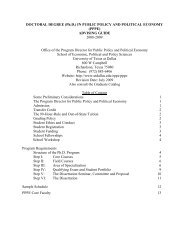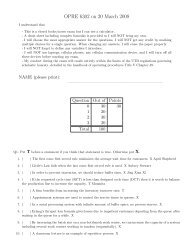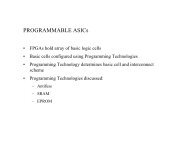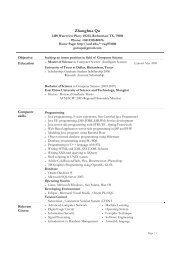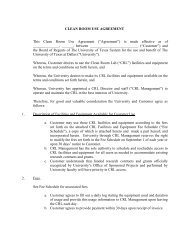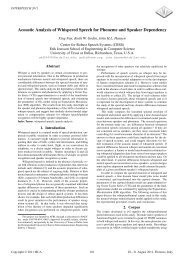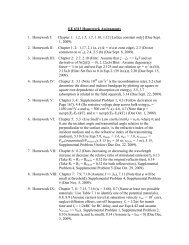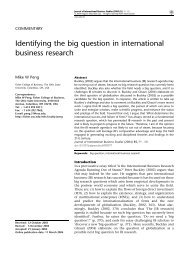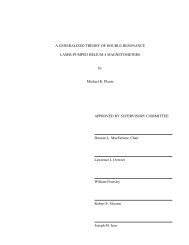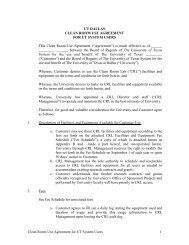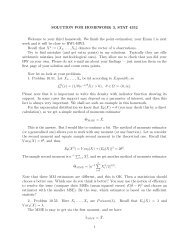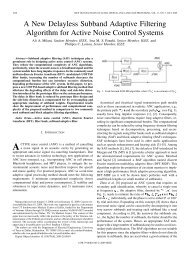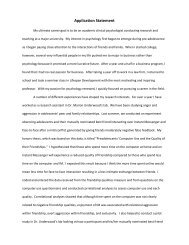Behind Intermediary Performance in Export Trade - The University of ...
Behind Intermediary Performance in Export Trade - The University of ...
Behind Intermediary Performance in Export Trade - The University of ...
You also want an ePaper? Increase the reach of your titles
YUMPU automatically turns print PDFs into web optimized ePapers that Google loves.
INTERMEDIARY PERFORMANCE IN EXPORT TRADE<br />
THE INTERMEDIARY’S PERSPECTIVE<br />
Draw<strong>in</strong>g on transaction cost, agency,<br />
and resource-based theories, we suggest<br />
that export-related costs can be decomposed<br />
<strong>in</strong>to three key components: (1)<br />
search costs, (2) negotiation costs, and<br />
(3) monitor<strong>in</strong>g/enforcement costs. Accord<strong>in</strong>gly,<br />
we derive a research model<br />
(Figure 1), which posits that as long as<br />
the export <strong>in</strong>termediary possesses resources<br />
that will help exporters lower<br />
export-related costs along these three dimensions,<br />
its services will be sought, its<br />
survival viable, and its success likely.<br />
Search Cost M<strong>in</strong>imiz<strong>in</strong>g<br />
Search costs typically <strong>in</strong>volve the ex<br />
ante costs <strong>of</strong> acquir<strong>in</strong>g knowledge<br />
through market research and plann<strong>in</strong>g.<br />
Acquir<strong>in</strong>g such knowledge without external<br />
help can be costly and time-consum<strong>in</strong>g<br />
(Eriksson, et al., 1997). High<br />
search costs have not only kept many<br />
would-be exporters from expand<strong>in</strong>g <strong>in</strong>ternationally,<br />
but may also lead to <strong>in</strong>adequate<br />
search prior to export<strong>in</strong>g, which<br />
<strong>in</strong> turn <strong>in</strong>creases the probability <strong>of</strong> ex-<br />
FIGURE 1<br />
RESEARCH MODEL<br />
port failure for exporters. This is where<br />
export <strong>in</strong>termediaries can help, by provid<strong>in</strong>g<br />
knowledge about foreign markets,<br />
experience with export processes, and<br />
familiarity with <strong>in</strong>ternational market<strong>in</strong>g<br />
strategies. Moreover, <strong>in</strong>termediaries can<br />
leverage such knowledge across multiple<br />
client firms and products. Thus, there<br />
are economies <strong>of</strong> scale and scope <strong>in</strong> overseas<br />
distribution that <strong>in</strong>dividual exporters<br />
cannot match. In the case <strong>of</strong> the best<br />
export <strong>in</strong>termediaries, their superior<br />
knowledge and their ability to leverage<br />
this knowledge may be regarded as a<br />
unique, <strong>in</strong>tangible resource that cannot<br />
be easily replicated by compet<strong>in</strong>g <strong>in</strong>termediaries<br />
and/or <strong>in</strong>experienced exporters.<br />
<strong>The</strong>refore:<br />
Hypothesis 1: <strong>The</strong> greater the export<br />
<strong>in</strong>termediary’s knowledge <strong>of</strong> foreign<br />
markets and export processes, the<br />
stronger its performance.<br />
Negotiation Cost M<strong>in</strong>imiz<strong>in</strong>g<br />
Negotiation costs not only <strong>in</strong>clude the<br />
direct costs <strong>of</strong> travel and personnel, but<br />
also the ex ante costs <strong>of</strong> potential hazard<br />
332 JOURNAL OF INTERNATIONAL BUSINESS STUDIES



